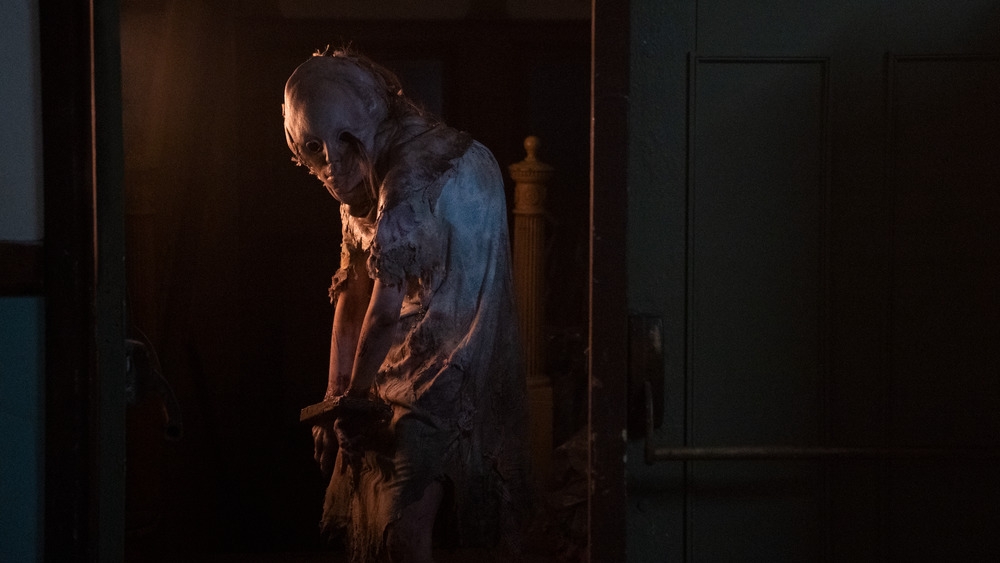Welcome To Raccoon City lacks the stupid majesty of the previous Resident Evils
Where have you gone, Paul W.S. Anderson? The zombies turn their lonely eyes to you

Among the key points in Roger Ebert’s one-star review of genre hellraiser Paul W.S. Anderson’s 2002 Resident Evil: the deafening clangs inexplicably emanating from unmoving doors and metallic objects, the goofy opening narration, the boneheaded dialogue that follows, the brazen illogic of its ticking-clock plot, and the unintended comedy of an unsurvivable laser-trapped hallway. At the time, he was far from alone in his distaste for this orgy of blood and CGI, but a reclamation effort has improved the film’s reputation in the years since its release. Though at times powerfully, magnificently stupid, this unlikely cult object and its many sequels modeled a consistent industrial-nightmare style and set of thematic preoccupations, as valid an authorial signature as anyone else’s. Those inclined to search for it could find a demented kind of lowbrow brilliance under the thick layer of viscera.
Alas, there’s no covert greatness to the just-plain-underwhelming Resident Evil: Welcome To Raccoon City, a reboot totally bereft of the visual distinction or creative personality that often made its predecessors intriguing diamonds in the rough. Gone is Anderson’s innovative fusion of practical and nascent digital effects; the occasional existential pondering of identity, humanity, and how mega-conglomerates degrade both; and the charisma dynamo of a cocktail-dress-clad Milla Jovovich, the reigning muse in the Cinematic Wife Guy Hall of Fame. They’ve all been replaced by nothingness, a marked lack of flavor rather than a decisive new one. The evident mandate to keep this IP active and generating profits looks especially hollow in a zombie film indistinguishable from any other beyond its proper nouns.
Anderson’s canny liberties (heads-up displays and first-person vantages absent from the console classics but generally redolent of their medium) have been walked back, as director Johannes Roberts restores the feel of the source material to bland ends. Though the unimaginative shootouts may be loyal to the letter of the games, they lack the Mountain-Dew-charged kineticism that such a circumstance calls for. The Gigeresque hallways are now unremarkable mansion interiors suggesting a particularly high-stakes round of Clue, the bulk of the action shifted from the laboratory facilities of the nefarious Umbrella Corporation to the home of its founder, a trade down that’s of a piece with Roberts’ strict constitutionalist attitude of text over texture. There’s no sight of Alice, Anderson’s invented protagonist, or the taunting hologram moppet known as The Red Queen. In case the genuflection to the fandom wasn’t clear enough, the reboot takes us back to 1998, the previous films’ chilly futurism now softened into a moldy nostalgia for the games’ heyday.
 Keep scrolling for more great stories.
Keep scrolling for more great stories.
